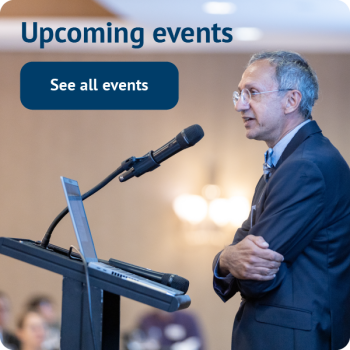NAIDOC Week 2023: For Our Elders
NAIDOC Week is celebrated during the first week of July each year. This year’s theme, ‘For Our Elders,’ celebrates and recognises Elders’ important roles within First Nations communities. Brisbane South PHN acknowledges First Nations Elders, past and present, as the holders of the memories, traditions, and histories of their nations, right across Australia.
Celebrating Elders
On Thursday, 29 June, Brisbane South PHN hosted a special lunch for Elders from the Brisbane south region. The event was to say ‘thank you’ for the Elders’ guidance, leadership, ongoing support, and to celebrate their contributions and achievements.
Over 100 Elders gathered for the event. It was a day filled with heartfelt connections and joyous interactions. Lunchtime entertainment included dancing and singing performances, lively karaoke, bingo, and inspiring words from special guest speakers.
Nyaree Mewett, Director of First Nations Partnership and Integration, said the Elders enjoyed catching up with family and friends across the region. ‘That’s why we celebrated NAIDOC Week the way we did; to focus on thanking the Elders,’ she says. It was a wonderful day to come together purely to say, “Thank you.”‘
Of the feedback we received from the Elders, Nyaree explained that ‘it was great that the Elders could see family and friends they hadn’t seen for ages. It was especially amazing to be all together to celebrate, recognise and commemorate the history, culture, and achievements of so many of them,’ she continued. ‘Many Elders said during the lunch that they were happy to be at an event with this many people that wasn’t about Sorry Business.’
Supporting Elders
Brisbane South PHN is committed to amplifying First Nations’ voices to improve health and wellbeing outcomes for First Nations people and communities. We recognise and honour the importance of the lived experiences, resilience, and wisdom of Elders, as well as the invaluable cultural knowledge that is held and shared, to help make health services culturally safe and appropriate for First Nations peoples.
‘One of the biggest things we’re trying to achieve is to make sure that programs and service providers are aware of and better understand the health and wellbeing needs of Elders across the Brisbane South Region.’ said Nyaree,
One of the best ways to do this is by consulting with and co-designing programs and initiatives together with Elders.
‘We have regular interactions with the Elders to ensure our service providers are approaching the community respectfully, and working in culturally safe ways,’ said Nyaree. ‘We’re hearing what is being said and supporting our service providers to deliver culturally safe and appropriate services for Elders.’
Listening to Elders
‘Our Elders are involved in programs and initiatives right across our organisation,’ explained Nyaree of Brisbane South PHN’s approach. ‘We work with Elders to ensure we include perspectives and feedback that will improve and inform our work, including our Reconciliation Action Plan (RAP), program areas, community councils, and funding models.
‘One example of a program that supports Elders in our region is the Healthy Aging Hubs delivered by Inala Wangarra,’ she said. ‘Elders named it Balgah binay, which means “coming together to learn and be uplifted.”
The program provides Elders, their families, and carers access to relevant health and aged care information and supports. It considers and incorporates the cultural, physical, mental, spiritual, emotional and social needs and requirements of clients engaged in the program.
‘We’ve also been facilitating yarning circles about programs and information with a focus on Elders, including the yarning circle held on Minjerribah (North Stradbroke Island). The plan is to continue holding yarning circles in more locations across the Brisbane south region,’ Nyaree said.
Brisbane South PHN also supports Elders through My Health for Life (MH4L), a free program focusing on lifestyle, including wellbeing areas of health. It aims to empower participants to be well, stay well and lessen the risk of developing chronic diseases. Participants can make healthy choices in their everyday lives through learning and coaching approaches.
More information
- Enrol in our free cultural awareness training for primary care, allied health and commissioned services.
- Read our 2nd Stretch Reconciliation Action Plan (RAP).
- Understand the First Nations countries of the Brisbane south region.
- Learn how to refer First Nations patients to participate in tailored My Health for Life support.





